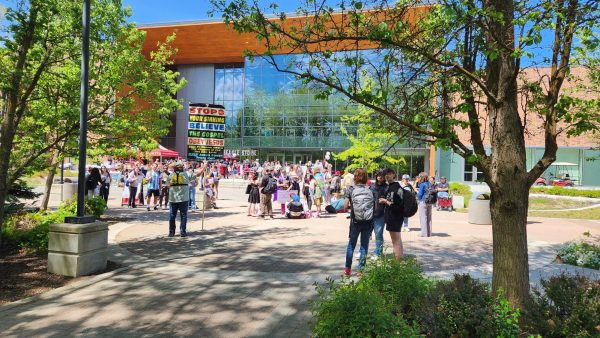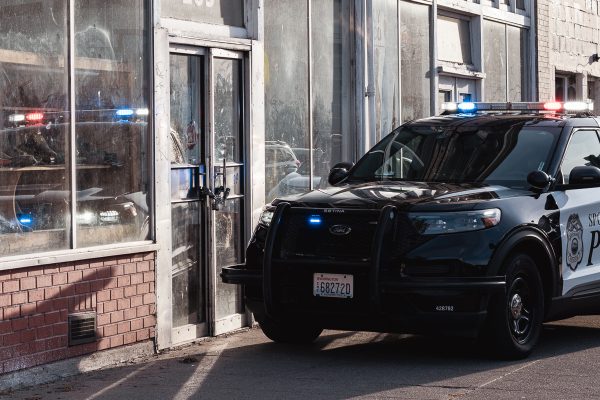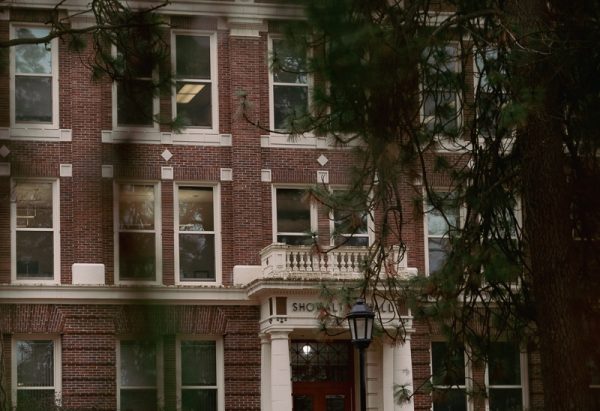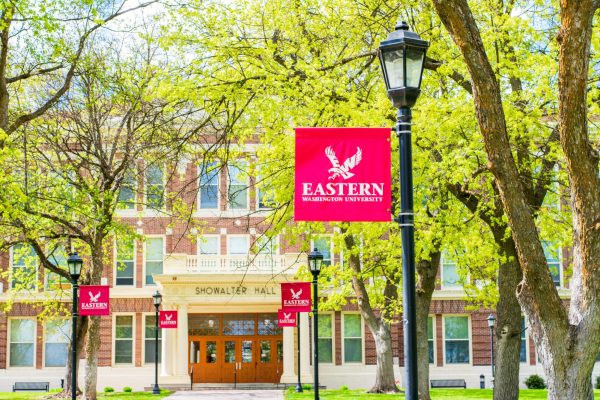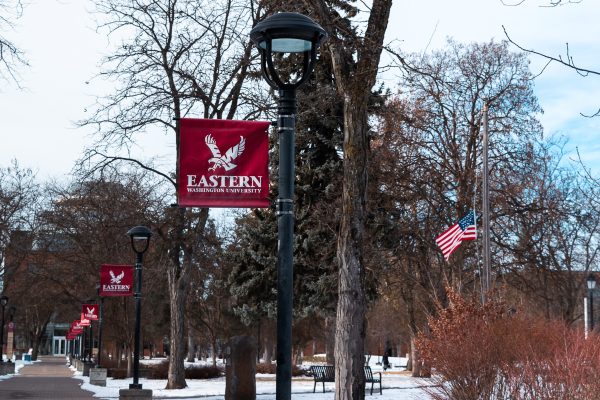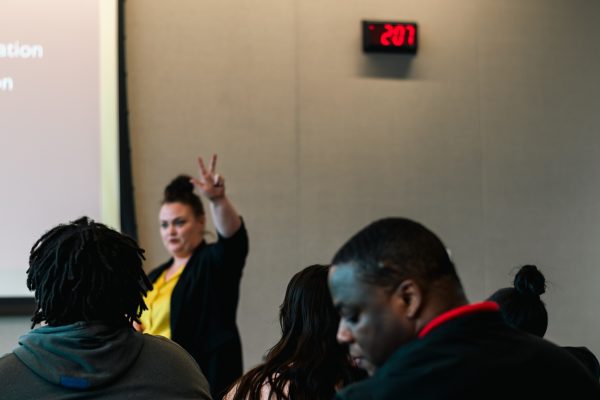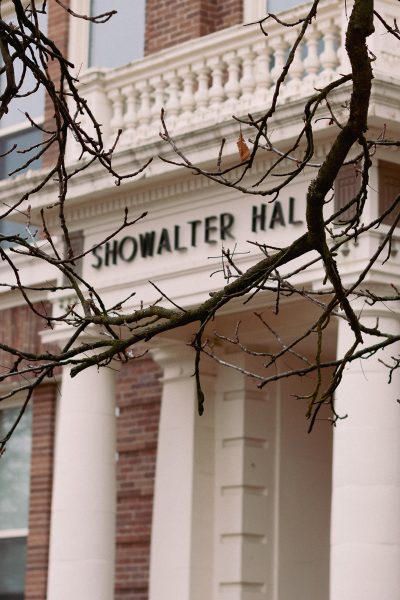EWU disability certificate program students journey to Ghana
September 27, 2012
Summer is a time for students to relax, take a break from school and maybe find a coveted part-time job for some extra cash. For one group of students it was the opportunity to further their understanding of disabilities in a different cultural setting and get elbow deep in volunteer work.
Romel Mackelprang, director of disability studies, organized a trip to Ghana, Africa, for nine students participating in the disability studies certificate program. According to Mackelprang, students were given the opportunity this year to travel to Ghana for three weeks and learn about the impact of boreholes and do some volunteer work in a health clinic.
The overall purpose of the trip was to have students learn about disabilities in a different cultural setting while providing community service in a study-abroad type atmosphere.
Students stayed in the rural village of Abomosu in a three bedroom house for most of the trip while they did volunteer work. During this time, students would talk to locals and water officials about boreholes. Some students provided help at a local health clinic.
Boreholes are long, narrow holes dug into the ground in order to retrieve water. In developing countries, this is a common practice. When the hole is drilled, a pump is placed into the hole with a method for extracting the water above ground. During the interviews the students conducted, they asked questions about water quality and the quality of the boreholes themselves.
Lexi Baasch, a senior majoring in interdisciplinary studies in the pre-occupational therapy program described the interview process and the reason for them in an email.
“I went with another student and an interpreter to different villages and interviewed villagers as well as water officials on things like water quality: if borehole water is any better than their prior water source, how often the boreholes break down, etc. Each village was pretty consistent with their answers, but separate villages had both unique and pretty constant answers.
“Companies will go and install boreholes, which are wells that they pump to get clean water, but they never go back and ask how they like them or if their quality of life is any better, so that’s what we did. Many locals expected us to be the ones to provide them with more boreholes and better water, but we were just there to ask about it.”
Although the interviews were not a direct form of help, they were still necessary.
“Some people were helped by students in the clinics, and other people were helped indirectly through the interviews. We didn’t help them at that moment in time, but getting that information that has never been gathered before will definitely help people in the future,” said Baasch.
During the last week of their trip, students were able to visit an urban area and do some tourist activities. One of the stops was at the Elmina Slave Castle, a place during the period of slavery where many slaves were bought, sold and traded from the 1600s to 1800s.
“The Elmina Castle was very devastating to learn about it but it was good for us to learn about the Adshanti people,” said Kaplan.
After seeing the castle, the students were able to do some leisurely activities.
“The last few days we were in Ghana, we actually got to be tourists and we stayed at a really nice hotel right on the beach. It was really cool to see both sides of Ghana — poverty and touristy,” said Baasch.
“Shopping was crazy because of the vendors pressuring us a lot, but we all managed to bargain pretty well. And lots of people bought fabric, even a bow and arrow,” said Kaplan.
Though the students walked away with eye-opening experiences and a wealth of knowledge, there were some hesitations about going to a foreign country for some of them. Kaplan said that although she had been to foreign countries before she had hesitations because she had never seen poverty and was unsure of what she would encounter.
Others were quite comfortable being in a foreign country. Reika Horio, an international student from Japan and a communications studies major, has been to several foreign countries and is used to being immersed in different cultures and customs. She has also been doing volunteer work in Cambodia since she was a freshman.
“I love languages, culture and different perspectives. As I know more about the world, I realize I don’t know anything,” Horio said. “That made me think I would like to know more and more. Through those experiences, I realize I would like to work for developing countries in the future.”
Horio’s experience in Ghana differed from her fellow students because she was able to look at it from an entirely different perspective.
“Since I was the only international student, I was so nervous in the beginning,” said Horio. “My English is not fluent, and honestly I cannot understand what native speakers talk about when they have deep conversations. Language was one of the walls for me.
“Moreover, I see things from my Japanese perspectives. I have Japanese habits and it was hard to change during this trip, so sometimes Americans couldn’t understand my behavior. Whenever I faced this situation, I explained the way I [grew] up and asked them try to understand what and why I am doing [things] like that.
“The opposite things also happened, too. Whenever I couldn’t understand what Americans [were] doing, I asked them why they did [things] like that. It was a great experience to understand each other and I realized this is the true meaning of international understanding.”
When the students returned, some were happy and others were upset.
“I was honestly extremely happy to come back to America, but after being here less than a week, I was ready to go back,” said Baasch. “Literally everything is different there. I’ve heard of many people who fall in love with Africa, and now I see how. I think there will always be more work to do.”
In contrast, Kaplan was less than thrilled upon her return.
“Coming back from Ghana was not easy because I felt sick being in America because of all the things we have and just questioning how we got the opportunity to have electricity, etc.”
Regardless of their feelings upon returning home, the three agreed that they could see themselves returning to Ghana in the future and although they are satisfied with the work they did, they feel like there is still more to do.
“I am very happy to go there, and I would like to go back in the future. However, whenever I learned new things in Abomosu, I recalled my experience in Cambodia and I realize my heart is in Cambodia,” said Horio.
“I was satisfied with the work we did such as interviewing villagers about water, but I wish we did more disability learning and hands-on activities in the rehab centers,” said Kaplan. “In Begaro, we cleaned but I wanted to job shadow the SPED [special education] teacher and see how they are educating parents. Luckily, during our break I decided to go job shadow for myself and help the [special education] teacher by explaining what knowledge I had and was able to help a mother and a child.”
“One village told us that they had about 300 Cedis [$150] in their account for borehole maintenance, and I had more than that in my purse just for souvenirs,” said Baasch. “I had more money with me for gifts than a whole village had to maintain their water source. That was sad and shocking to me. So yes, there is still work to be done.”
“I could definitely see myself going back to Ghana or anywhere in Africa. I would love to go back and see all the amazing people I met, and try to do more for these people who really need it.”



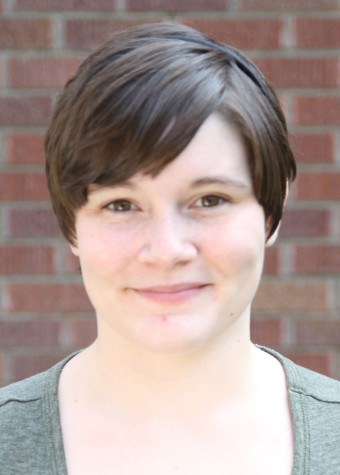


![Simmons said the biggest reasons for her success this year were “God, hard work, and trusting [her] coach and what she has planned.”](https://theeasterner.org/wp-content/uploads/2024/05/image1-1-1200x800.jpg)

